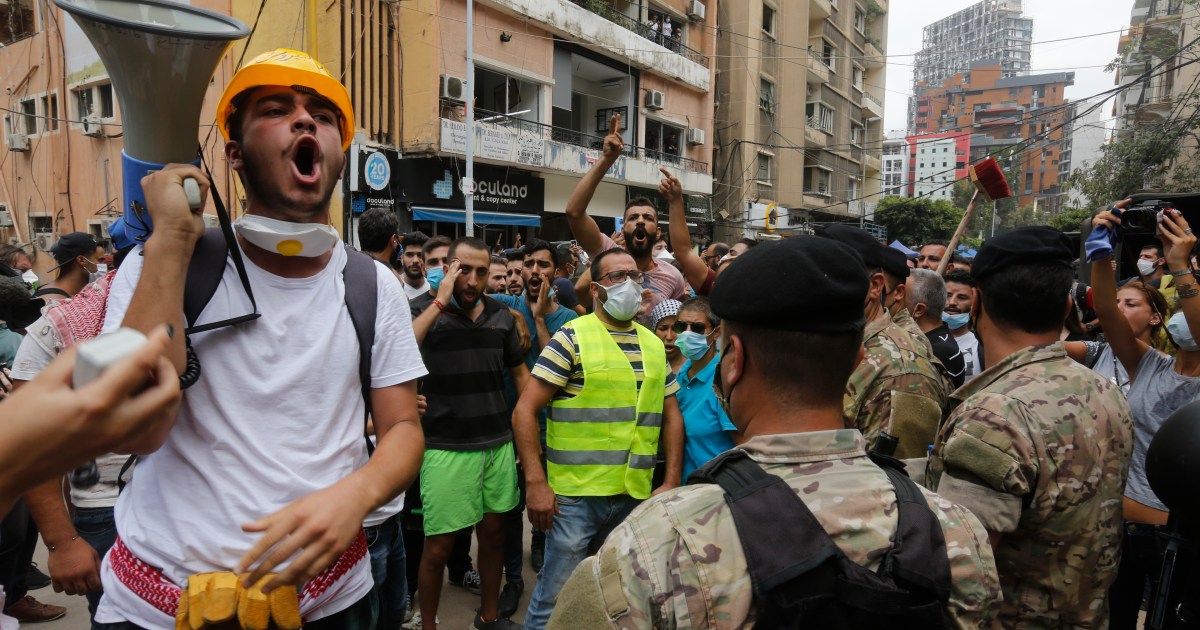The vicinity of the Lebanese parliament witnessed clashes between the police and protesters who tried to storm the parliament building, as an expression of their anger at the political class and the explosion that occurred at the port of the capital, Beirut.
Shops were assaulted and broken during confrontations that started from the early evening hours and continued at night.
The streets and alleys adjacent to the House of Representatives are witnessing repeated attacks between protesters and the police, who used tear gas to disperse them.
Earlier, the streets of the Lebanese capital Beirut witnessed anger from protesters who gathered in the vicinity of the port, calling for the fall of the regime and questioning the authorities' promises of impartial investigations, as some of them were receiving the French President during his visit to the region.
A number of protesters also gathered in front of one of the entrances leading to the headquarters of the Lebanese Parliament in the center of the capital, Beirut, and chanted slogans condemning what they described as corruption in the state institutions.
The security forces dispersed the protesters with tear gas after trying to bypass the barbed wire to reach a road close to the parliament, and they threw stones at the security forces.
On the other hand, the United Nations Office for the Coordination of Humanitarian Affairs invited member states to participate in an online meeting on the humanitarian situation in Lebanon next Monday.
help
A diplomatic source told Al Jazeera that the Office for the Coordination of Humanitarian Affairs will give a briefing on the situation in Beirut and discuss UN efforts to support the ongoing response there.
The source also indicated that the meeting will highlight the gaps in the current response to the situation in Beirut and call for urgent support.
Farhan Haq, deputy spokesman for the UN Secretary-General, said that the UN Humanitarian Coordinator, Najat Rushdie, has saved $ 9 million from the Lebanese Humanitarian Fund to support the emergency response to the Beirut explosion.
Haq stressed that the Under-Secretary-General for Humanitarian Affairs, Marc Lukoc, will announce the provision of more funds from the United Nations Central Emergency Response Fund to strengthen the capacity of hospitals in the Lebanese capital.
The flow of Arab and international aid continues to support relief operations and treat the wounded and injured as a result of the explosion that rocked Beirut Port on Tuesday.
The explosion killed 137 people and wounded about 5,000, in infinite numbers, while the security and judicial agencies are continuing their investigations to find out the reasons for the explosion, and the Lebanese army imposed a wide security cordon around the port.
Lebanon has been experiencing the worst economic collapse for months, and almost half of the Lebanese people live below the poverty line, while 35% of the workforce suffers from unemployment.
The port explosion was a major blow to the residents of the capital and its surroundings, as some 300,000 people have been displaced from their homes, which were destroyed or severely damaged.

